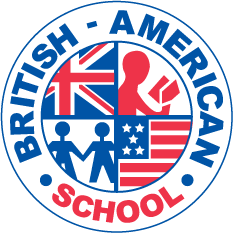More than a trilingual school…
TOTAL IMMERSION IN THE ENGLISH LANGUAGE
The British American School in Puerto Vallarta offers a total immersion program in English that begins at the very early stages in kindergarten and continues throughout elementary, secondary and high school. English immersion is widely considered the best method of learning English since the language is spoken at all times, and subjects such as sciences and social studies are offered completely in English.




The first 5 years include: Pre-Nursery, Nursery, Kinder 1, Kinder 2 and Pre-Primary. Beginning in Nursery, certified teachers speak in English during all their classes and activities. Students quickly begin to understand and respond.
The British American School in Puerto Vallarta is a multicultural and inclusive educational institution where students can make friends from around the world. Naturally, there is a predominantly Mexican population, but we also have students from the USA, Canada and other countries. Many of our students speak English at home, so the language is heard all over the school, inside and outside the classrooms. Students feel comfortable speaking English on a regular basis.
Reaching higher goals in English
When compared to students in other types of language programs, immersion students typically achieve higher levels of English language proficiency.
(Lindholm, Leary & Howard, 2008)
Total immersion impacts the brain in many ways that are beneficial not only for the acquisition of the target language, but also to make students better learners in general.
There's a well-established positive relationship between basic thinking skills and being a fully proficient bilingual speaker who maintains regular use of both languages. Fully proficient bilingual speakers outperform monolinguals in the areas of divergent thinking, pattern recognition, and problem solving. (Bialystok, 2001; Cenoz & Genesee, 1998; Hakuta, 1986; Education, Audiovisual and Culture Executive Agency, 2009; Peal & Lambert, 1962)
Bilingual children develop the ability to solve problems that contain conflicting or misleading cues at an earlier age, and they can decipher these clues more quickly than monolinguals. When so doing, they demonstrate an advantage with selective attention and greater executive or inhibitory control. (Bialystok, 2009)
Fully proficient bilingual children have also been found to exhibit enhanced sensitivity to verbal and non-verbal cues and to show greater attention to their listeners' needs relative to monolingual children. (Lazaruk, 2007)


